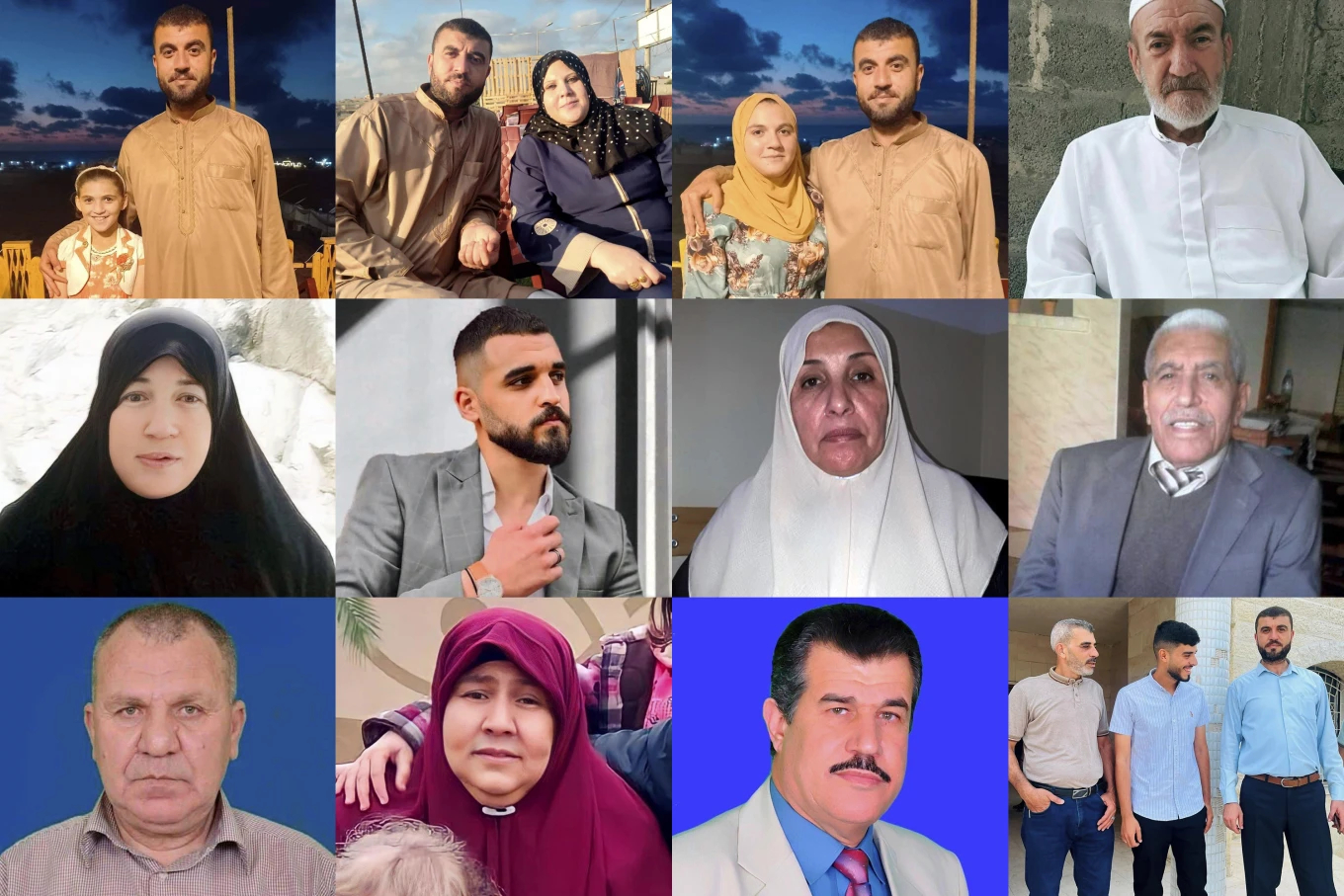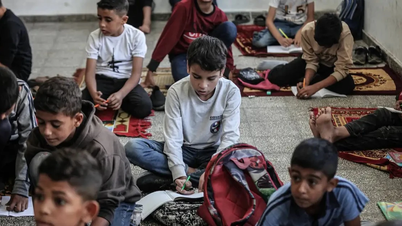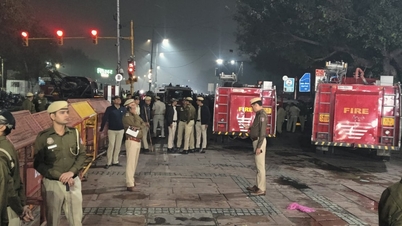At least 60 Palestinian families with at least 25 members were killed in bombings from October to December, the deadliest and most devastating period of the war, according to an Associated Press investigation.
Of these, nearly 25% lost more than 50 members in those weeks. Some families had virtually no survivors left to report casualties, especially as recording and sharing information became more difficult.

Relatives Salem lost in Israeli attacks in Gaza. Photo: Youssef Salem
Youssef Salem is one of the last survivors of his family in Gaza. 173 of Youssef Salem's relatives were killed in Israeli airstrikes in just a few days in December. By spring, that number had risen to 270.
Bones and flesh litter the rubble of the family home. Strands of a young cousin’s blond hair peek out from under the bricks. Unidentifiable bodies piled on donkey carts. These are all that remain of survivors from hundreds of Gaza families like the al-Aghas, Salems and Abu Najas.
Youssef Salem's hard drive is filled with photos of the dead. "My uncles, the breadwinners, were completely murdered along with their wives, children and grandchildren. There is nothing like this war," Salem said from his home in Istanbul.
The Mughrabi clan also saw more than 70 people killed in Israeli airstrikes in December. More than 50 members of the Abu Najas family were killed in attacks in October, including at least two pregnant women. The Doghmush clan lost at least 44 members in an attack on a mosque. By the spring, more than 80 members of the Abu al-Qumssan family had been killed.
During the 51-day war in 2014, the number of families that lost three or more members was less than 150. In this war, as of January, nearly 1,900 families had lost multiple members, of which more than 300 families lost more than 10 members in the first month of conflict alone.
The killing of multiple families over multiple generations is a key part of the genocide case against Israel, now before the International Court of Justice. In addition, the International Criminal Court prosecutor is seeking arrest warrants for two Israeli leaders for war crimes and crimes against humanity, including the intentional killing of civilians, as well as three Hamas leaders for crimes related to the October 7 attack.
Ramy Abdu, president of the Geneva-based EuroMed human rights watchdog, which monitors the war in Gaza, said Palestinians would remember entire families disappearing from their lives. “It’s like an entire village or hamlet being wiped out,” he said.
Last December, a senior Israeli official revealed that for every Hamas fighter killed, two Palestinian civilians were killed, a ratio that experts say reflects a higher level of civilian casualties than in previous wars.
Israel says it has taken steps to minimize civilian harm, such as issuing direct warnings to civilians in past conflicts. But in this war, that approach has been partly replaced by orders to evacuate entire areas, which not everyone has been willing or able to comply with.
But among the deadliest attacks from Oct. 7 to Dec. 24, residential buildings and shelters with families inside were targeted, according to an AP analysis. None had a clear military objective or a direct warning to those inside.
In total, the attacks killed more than 500 people, including two bombings that wiped out the Salems family and three others that killed 30 members of the al-Agha family. The toll on innocent Palestinians was enormous.
The air strikes left several large craters, and weapons experts believe they were caused by some of the largest bombs in Israel's arsenal, possibly 907kg missiles targeting tunnels, which are rarely used in densely populated areas.
Ngoc Anh (according to AP)
Source: https://www.congluan.vn/cuoc-chien-cua-israel-o-gaza-da-xoa-so-gia-dinh-cua-nhieu-nguoi-palestine-post299742.html






































































































![Dong Nai OCOP transformation: [Article 4] Reaching national standard products](https://vphoto.vietnam.vn/thumb/402x226/vietnam/resource/IMAGE/2025/11/11/1762825820379_4702-cac-san-pham-trai-cay-chung-nhan-ocop-nongnghiep-174649.jpeg)


![Dong Nai OCOP transition: [Article 3] Linking tourism with OCOP product consumption](https://vphoto.vietnam.vn/thumb/402x226/vietnam/resource/IMAGE/2025/11/10/1762739199309_1324-2740-7_n-162543_981.jpeg)







Comment (0)